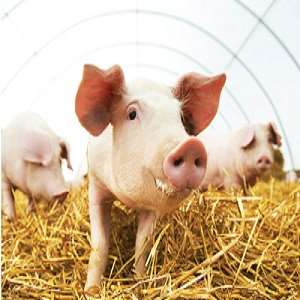Environmental samples from a U.S. swine farm contained several species of Enterobacteriaceae with carbapenem resistance genes that could be transmitted to other bacteria, a scientific article states.

The article authors, a team from The Ohio State University, wrote that the carbapenem-resistant species of Enterobacteriaceae—such as Escherichia coli and Proteus mirabilis—found in a swine farrowing barn are the first discovered in U.S. livestock to carry the resistance genes on a transmissible plasmid.
The article, published Dec. 5, 2016, in Antimicrobial Agents and Chemotherapy, the American Society for Microbiology’s online-only journal, notes that a separate scientific article published in January 2016 described discovery of carbapenem-resistant and carbapenemase-producing bacteria, including species of Enterobacteriaceae, in U.S. dairy cattle. While isolates found in those dairy cattle could transmit resistance genes only to daughter cells, those found on the swine farm are more substantial threats to public health because of their potential for transmission between commensal bacteria and pathogens.
Click here to see more...